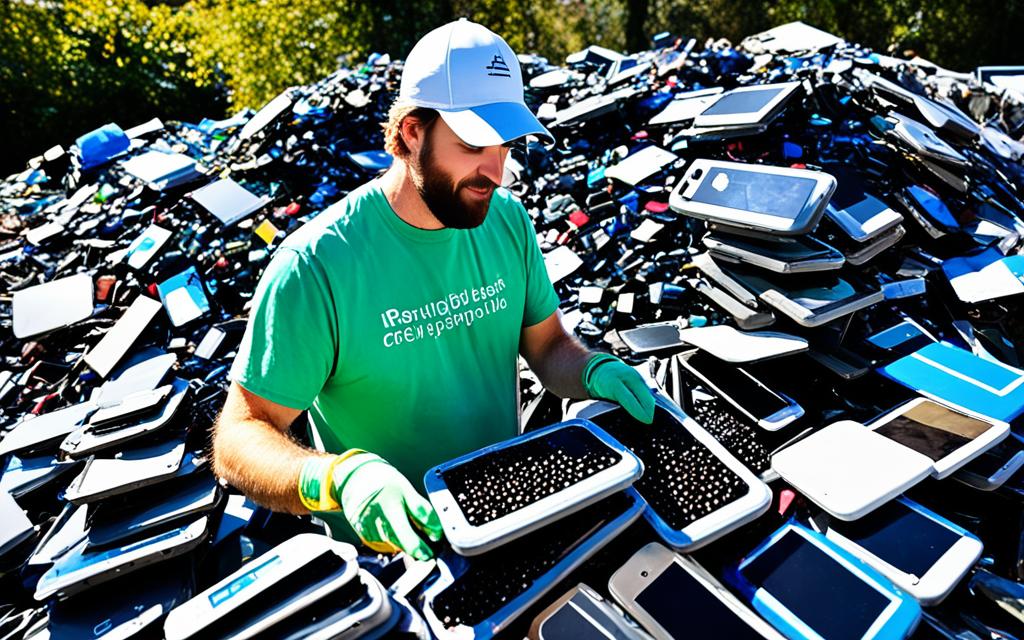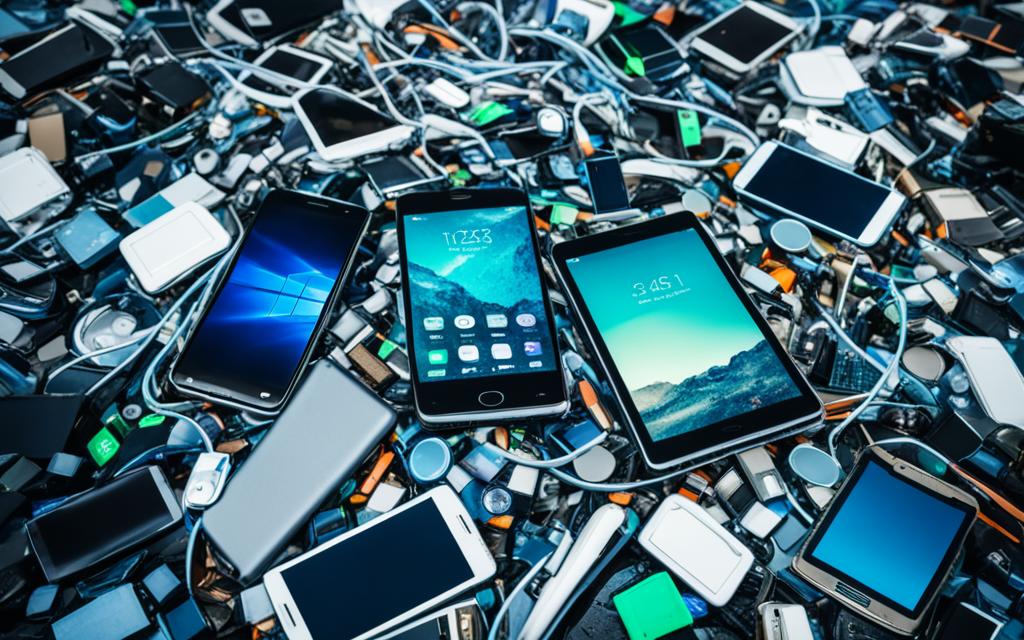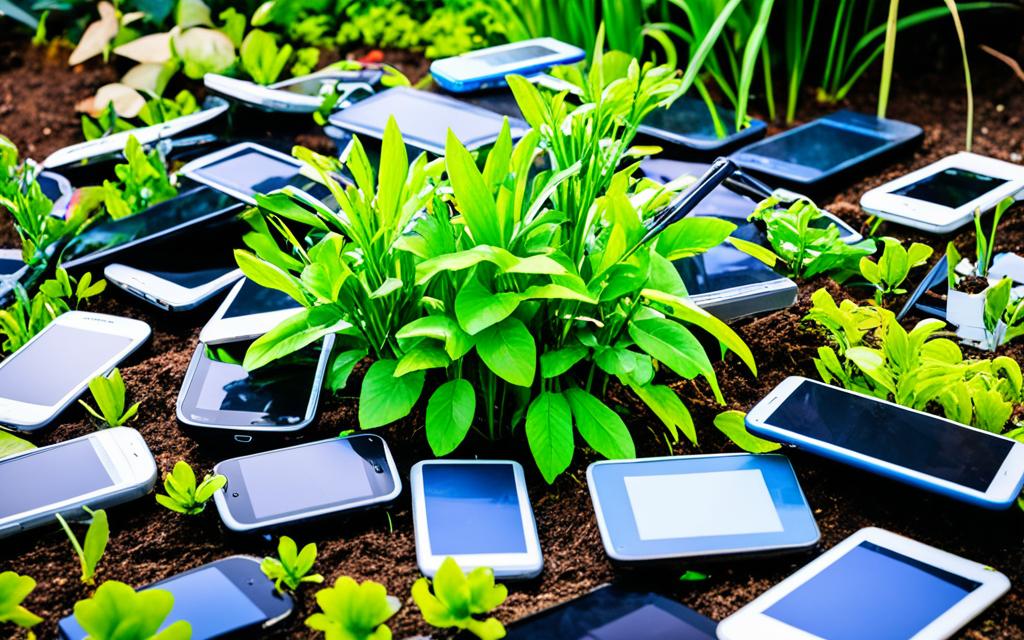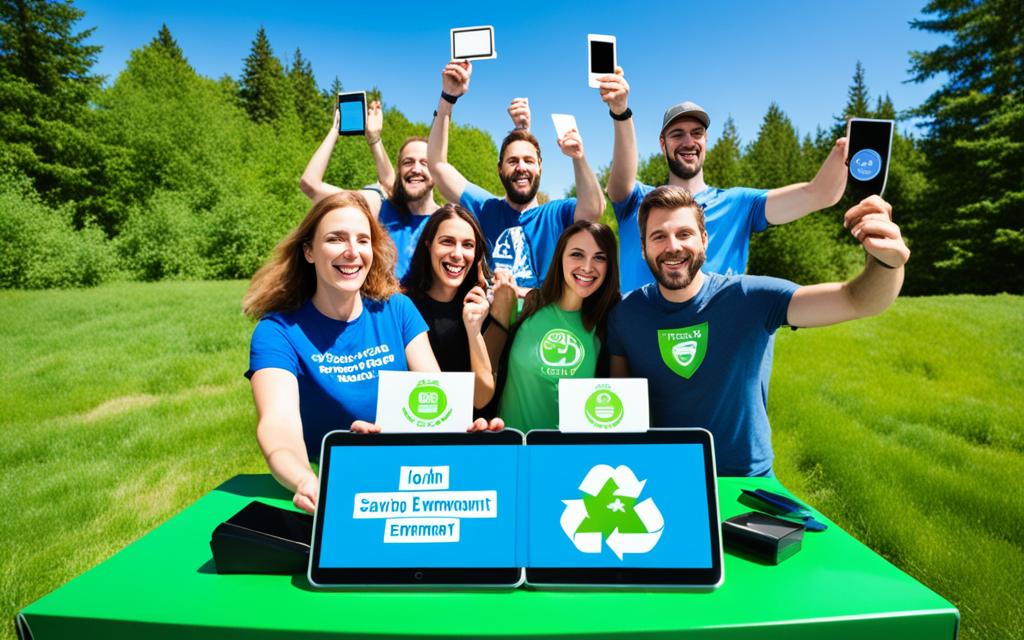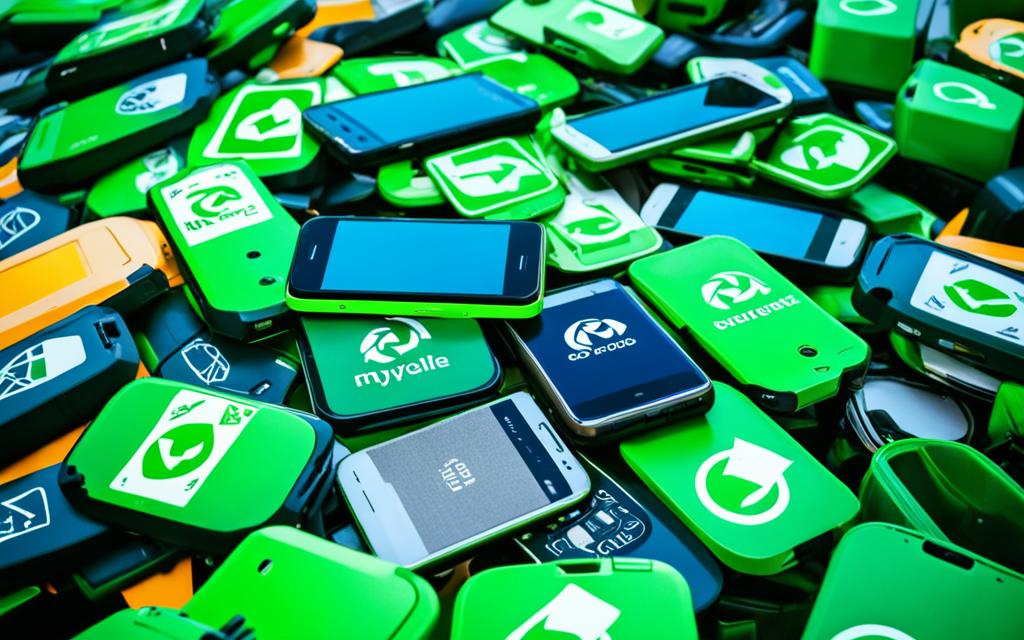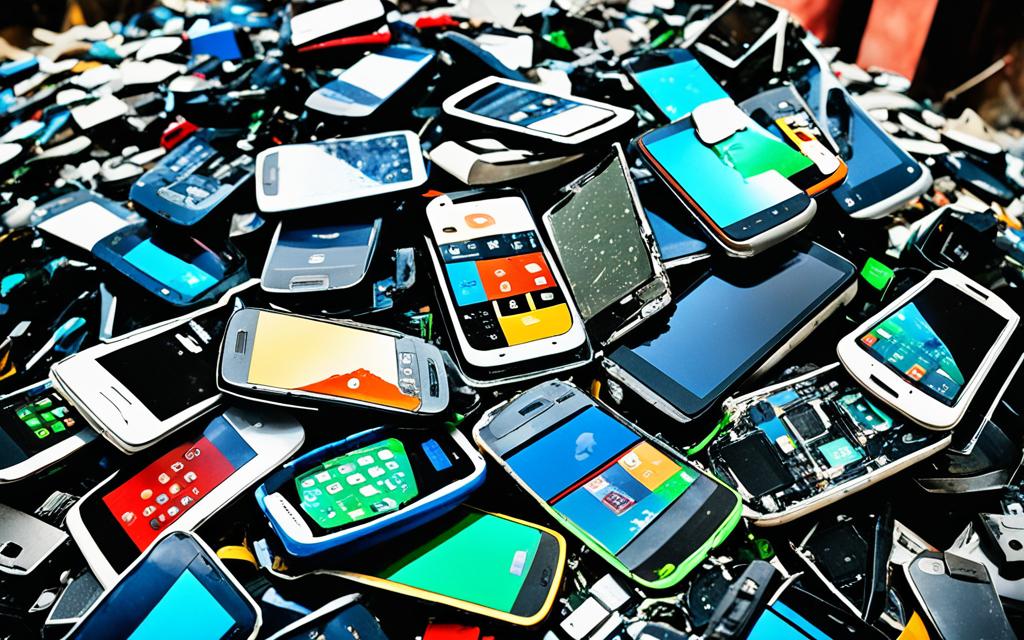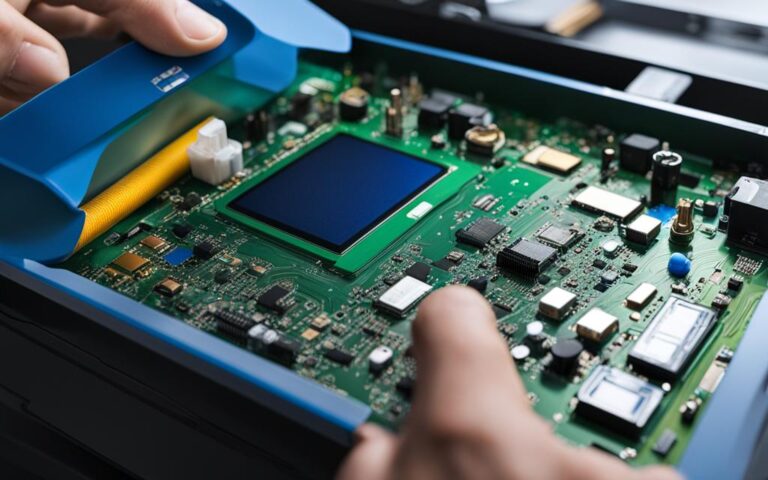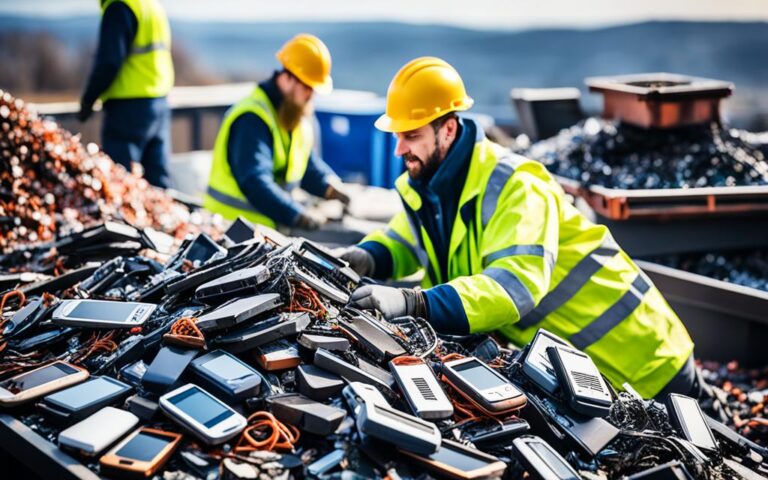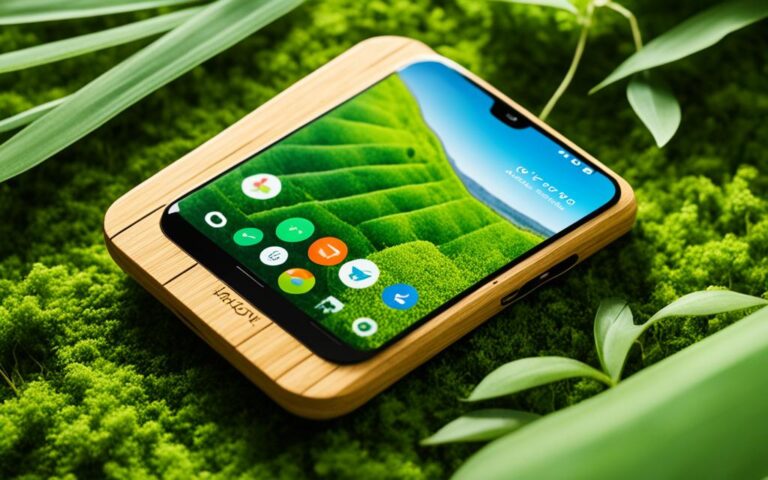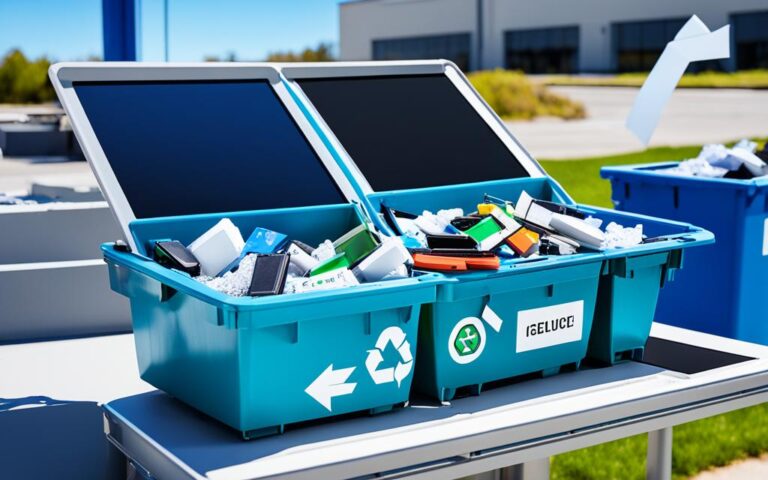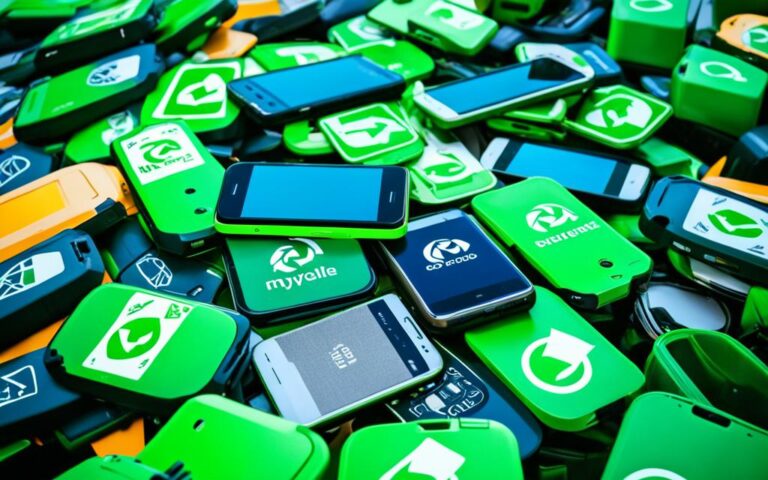How to Host a Successful Phone and Tablet Recycling Event
Are you passionate about the environment and looking for ways to make a positive impact? Hosting a phone and tablet recycling event can be the perfect opportunity to combine your love for the planet with a successful community initiative. By organizing an eco-friendly event focused on phone and tablet recycling, you can inspire others to join you in preserving our planet for future generations.
Recycling old phones and tablets is essential to reduce electronic waste and prevent hazardous materials from ending up in landfills. By hosting a successful event, you can encourage individuals to responsibly dispose of their unused devices and contribute to a more sustainable future.
During this guide, we will explore the importance of phone and tablet recycling, provide tips on how to organize a successful recycling event, and offer advice on the proper preparation for recycling devices. Let’s dive in and discover the steps to host an impactful phone and tablet recycling event together!
The Importance of Phone and Tablet Recycling
Electronics recycling is crucial for several reasons. First, discarded devices contribute to electronic waste, which is a rapidly growing stream of waste worldwide. Old phones and tablets that can’t be upgraded or traded in often end up in landfills, where they release harmful chemicals and toxins into the environment. These chemicals, such as mercury and chromium, can have severe health effects on both humans and animals. Additionally, recycling electronics conserves energy and reduces the carbon footprint associated with extracting and mining raw materials.
The Environmental Impact of Electronic Waste
“Electronic waste, or e-waste, is a significant environmental concern. With the rapid pace of technological advancement, more and more electronic devices are becoming obsolete, leading to an increased disposal of old phones and tablets. When these devices end up in landfills, the hazardous materials they contain can seep into the soil and water, polluting ecosystems and posing risks to human health. It’s crucial that we take action to recycle our electronic devices responsibly, mitigating the environmental impact of e-waste.”
Aside from the environmental damage caused by improper disposal, electronics recycling also helps conserve valuable resources. By recycling old phones and tablets, we reduce the need for raw materials like rare earth metals, copper, and gold. The extraction and mining of these materials contribute to deforestation, air pollution, and habitat destruction. By reusing and recycling electronic components, we can minimize the negative impacts associated with raw material extraction and preserve natural resources for future generations.
The Hazards of Improper Electronics Disposal
Electronic devices contain a variety of hazardous materials that can harm the environment and human health if not disposed of properly. Some common hazardous components found in phones and tablets include:
- Mercury: Found in switches, relays, and batteries, mercury can contaminate soil and water sources, leading to severe neurological and developmental issues.
- Lead: Present in solder and circuit boards, lead is highly toxic and can cause damage to the nervous system, kidneys, and reproductive system.
- Cadmium: Used in batteries, cadmium is a carcinogenic substance that can accumulate in soil, water, and plants, posing a risk to both human and animal health.
- Chromium: Found in circuit boards and casings, chromium is a carcinogen that can contaminate water sources and harm aquatic life.
Proper electronics recycling ensures that these hazardous materials are safely processed and prevented from leaching into the environment. Recycling facilities have the expertise and technology to extract valuable components and dispose of hazardous materials in an environmentally responsible manner.
By recycling our old phones and tablets, we not only protect the environment and our health but also contribute to the circular economy. Valuable materials recovered from recycled electronics can be used to manufacture new devices, reducing the need for virgin resources. This closed-loop recycling system promotes sustainability and minimizes the carbon footprint associated with electronics production.
| Hazardous Materials | Effects on the Environment | Effects on Human Health |
|---|---|---|
| Mercury | Pollutes soil and water sources | Neurological and developmental issues |
| Lead | Contaminates ecosystems | Nervous system, kidney, and reproductive damage |
| Cadmium | Accumulates in soil, water, and plants | Carcinogenic effects on humans and animals |
| Chromium | Contaminates water sources | Carcinogenic effects on humans and aquatic life |
It’s clear that electronics recycling is essential for protecting the environment, conserving resources, and safeguarding our health. By responsibly recycling our old phones and tablets, we can reduce the environmental impact of e-waste and contribute to a more sustainable future.
How to Recycle Phones and Tablets
When it comes to recycling phones and tablets, there are several options available to ensure their proper disposal. By choosing to recycle, you can contribute to environmental sustainability and prevent electronic waste from ending up in landfills. Here are some ways you can recycle your old devices:
1. Donate
If your phone or tablet is still in good working condition, consider donating it to organizations that refurbish and resell electronics. This not only gives your device a second life but also benefits individuals or communities in need. Research local charities or non-profit organizations that accept electronic donations and find out their specific donation requirements.
2. Trade-In
When purchasing a new phone or tablet, many retailers offer trade-in programs where you can exchange your old device for a discount on the new one. This is a convenient way to recycle your electronics while getting a return on your investment. Check with your device manufacturer or local electronics stores to see if they offer trade-in options.
3. Recycling Events
Take advantage of electronics recycling events organized by retailers or community organizations. Staples and Best Buy are examples of companies that often host these events, providing a convenient drop-off location for your old devices. Keep an eye on local events calendars or contact these retailers to inquire about upcoming recycling opportunities.
4. Electronic Recycling Centers
If there are no recycling events in your area, you can search for electronic recycling centers near you. These centers specialize in the proper disposal of electronic devices and ensure that valuable components are recycled responsibly. Visit websites such as RecycleNation or Earth911 to find recycling locations near you.
It’s important to note that recycling doesn’t only apply to phones and tablets. Other electronic devices such as small kitchen appliances, gaming systems, and batteries can also be recycled. Additionally, don’t forget to recycle accessories like cables and chargers, as they often contain valuable metals that can be reclaimed.
By exploring these recycling options, you can do your part in reducing electronic waste and promoting a more sustainable future.
| The Benefits of Recycling Phones and Tablets | The Importance of Proper Disposal |
|---|---|
| 1. Reduces electronic waste | 1. Prevents harmful chemicals from leaching into the environment |
| 2. Reclaims valuable materials for reuse | 2. Protects human and animal health |
| 3. Conserves energy and resources | 3. Minimizes the carbon footprint associated with raw material extraction |
Proper Preparation for Recycling
Before recycling phones, tablets, and other smart devices, it’s important to prepare them properly. By following these steps, you can ensure the protection of your personal data and maintain data security throughout the recycling process.
Perform a Factory Reset
To delete all personal data from your phone, tablet, or other smart devices, perform a factory reset. This process restores the device to its original settings, erasing all stored information. It’s important to note that a factory reset permanently deletes your data and cannot be undone. So, before proceeding, ensure that you have backed up any important files or information.
Remove the Battery
If your device has a removable battery, it’s recommended to remove it before recycling. This step is especially crucial for devices with lithium-ion batteries, as they can pose a safety risk if not handled correctly. By removing the battery, you eliminate the risk of any potential accidents during the recycling process.
Wipe the Hard Drive
When recycling computers, it’s essential to back up all data and wipe the hard drive using a specialized program. This ensures that your personal information is protected and cannot be recovered. Deleting files manually is not sufficient, as they can still be retrieved using data recovery methods. By wiping the hard drive, you can rest assured that your data remains secure.
Proper Battery Disposal
In addition to preparing your devices, it’s crucial to follow proper disposal procedures for batteries. Batteries can pose a safety risk if not handled correctly, and they contain hazardous materials that can harm the environment if not disposed of properly. To ensure responsible battery disposal, consider taking them to designated recycling centers or collection points in your area.
By following these preparation guidelines, you can protect your personal data, maintain data security, and contribute to a more sustainable future through proper electronics recycling.
Conclusion
Hosting a successful phone and tablet recycling event is a powerful way to inspire your community to engage in eco-friendly behavior and promote responsible electronics disposal. By taking the initiative to organize an event and providing easy recycling options, you can contribute to reducing electronic waste and protecting the environment.
Remember to follow proper preparation guidelines, such as performing a factory reset and removing batteries, to ensure the safety of personal data and the effective recycling of devices. Partnering with local organizations and retailers can also enhance the impact of your event and provide additional resources for recycling.
Together, we can make a positive impact on our planet by recycling old phones and tablets. By inspiring eco-friendly behavior and promoting responsible electronics disposal, we can protect our environment and contribute to a more sustainable future.
FAQ
How can I host a successful phone and tablet recycling event?
To host a successful phone and tablet recycling event, you can follow a few simple steps. First, choose a suitable location and date for the event. Next, promote the event through local advertisements, social media, and community partnerships. Ensure that you have proper collection bins or containers for the devices and arrange for their transportation to a recycling center. Finally, provide educational materials and resources about the importance of electronics recycling to inspire your community.
Why is phone and tablet recycling important?
Phone and tablet recycling is important for several reasons. Discarded devices contribute to electronic waste, causing environmental harm. When not disposed of correctly, these devices release harmful chemicals and toxins into the environment, posing health risks to humans and animals. Moreover, recycling electronics helps conserve energy and reduces the carbon footprint associated with extracting raw materials.
How can I recycle phones and tablets?
There are several ways to recycle phones and tablets. You can donate them to organizations that refurbish and resell them, or trade them in when purchasing new devices. Many retailers, such as Staples and Best Buy, host electronics recycling events where you can turn in old devices. If there are no recycling events in your area, you can search for electronic recycling centers near you.
What should I do before recycling phones, tablets, and other smart devices?
Before recycling phones, tablets, and other smart devices, it’s important to prepare them properly. For phones, perform a factory reset to delete all personal data. If possible, remove the battery, especially for devices with lithium-ion batteries. When recycling computers, back up all data and wipe the hard drive using a specialized program. This ensures that your personal information is protected and cannot be recovered. Make sure to follow proper disposal procedures for batteries as well.
How can hosting a phone and tablet recycling event make a positive impact?
Hosting a phone and tablet recycling event is a powerful way to inspire your community to engage in eco-friendly behavior and promote responsible electronics disposal. It encourages people to recycle their old devices, reducing electronic waste and protecting the environment. By organizing such an event, you contribute to the collective effort of conserving resources, reducing pollution, and raising awareness about the importance of recycling phones and tablets.

